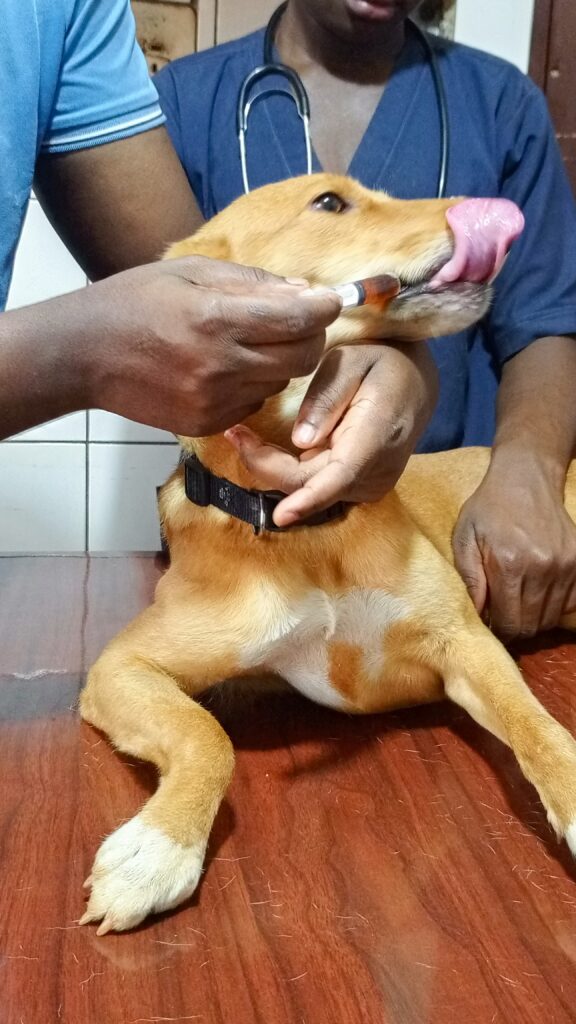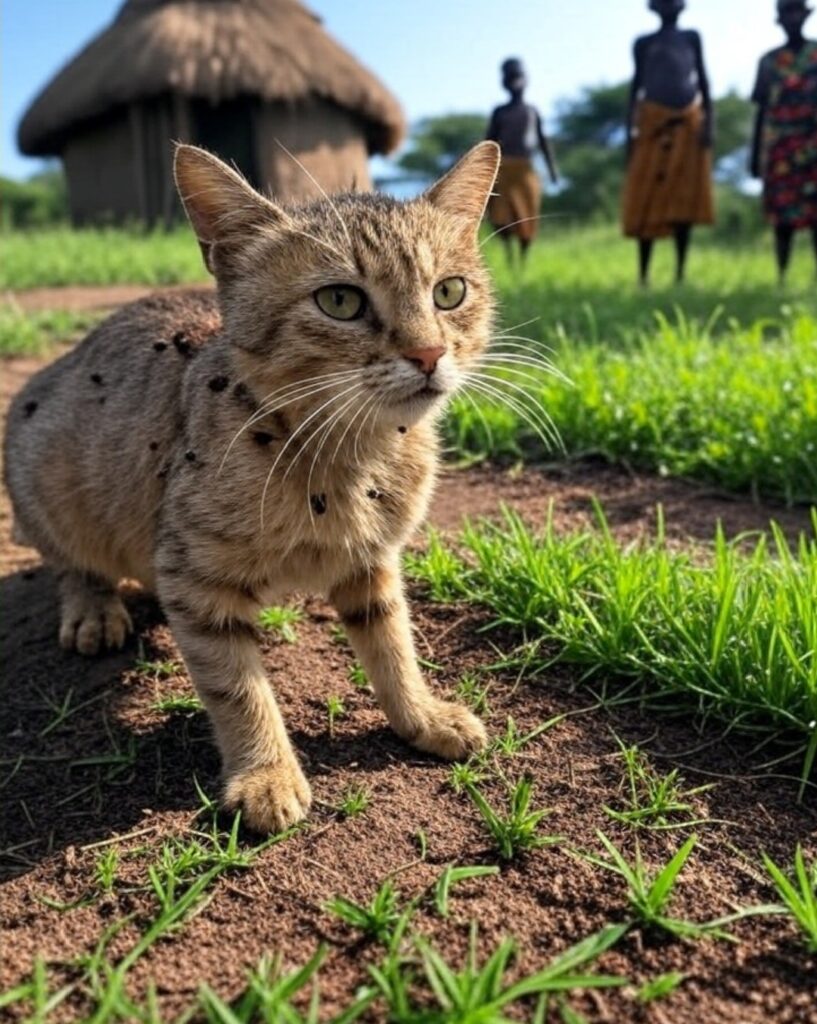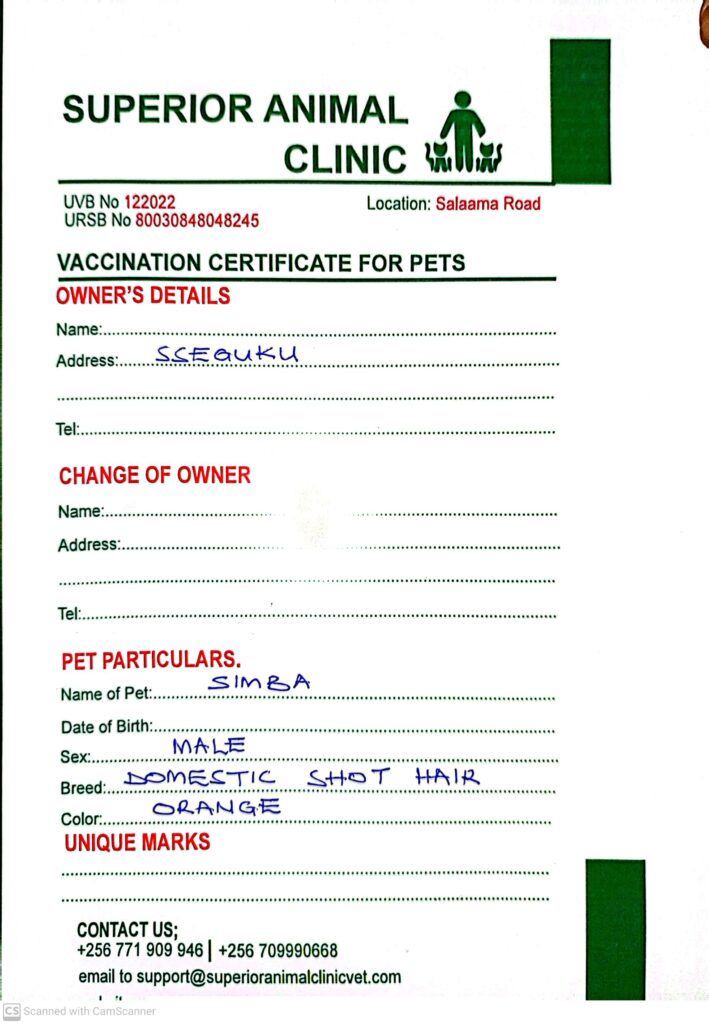
Owning a pet in Uganda is one of the most rewarding experiences — but it also comes with ongoing responsibilities and costs. Whether you’re welcoming a playful puppy or an affectionate cat into your home, it’s important to understand the real expenses involved.
In Uganda, especially in urban areas like Kampala, Entebbe, Mukono, and Wakiso, pet ownership is growing fast. More people are viewing pets as family members rather than just animals — which means investing in proper care, nutrition, and health.
Let’s break down what it really costs to own a dog or cat in Uganda, including clever ways to save money without compromising on your pet’s happiness or well-being.
🐶 Cost of Owning a Dog in Uganda
Dogs are loyal, protective, and deeply affectionate. But they also require a steady investment in food, health care, training, and general maintenance. Here’s a full breakdown:
1. Initial Purchase or Adoption
Before anything else, you’ll need to get your dog.
- Adoption: UGX 50,000 – 200,000 (often includes vaccinations and deworming)
- Buying a purebred: UGX 500,000 – 3,000,000+, depending on the breed and breeder reputation
Popular breeds in Uganda: German Shepherds, Rottweilers, Boerboels, Maltese, and mixed breeds for security or companionship.
💡 Tip: Adoption is far cheaper and saves a life. Many rescues in Kampala and Entebbe rehome healthy, vaccinated dogs ready for loving families.
2. Vaccinations and Routine Vet Care
Vaccinations are essential to protect your dog from deadly diseases like rabies, parvovirus, distemper, and leptospirosis.
- Initial vaccination package: UGX 100,000 – 200,000
- Annual boosters: UGX 80,000 – 150,000
- Routine vet visits (every 6 months): UGX 30,000 – 50,000 per visit
💡 Tip: Clinics like Superior Animal Clinic, Makindye (0771909946) offer affordable health check packages that include vaccines, parasite control, and deworming — saving you long-term costs.
3. Feeding and Nutrition
Feeding a dog properly affects its lifespan and overall health.
- Commercial food (Pedigree, Royal Canin, Drools): UGX 120,000 – 250,000/month
- Home-cooked diet (rice, minced meat, vegetables): UGX 80,000 – 200,000/month
Large breeds eat more, so your monthly cost can double.
💡 Tip: Mix commercial food with balanced home-cooked meals to maintain nutrition while controlling costs. Avoid feeding bones and fatty leftovers — they cause digestive problems and dental issues.
4. Parasite Control (Ticks, Fleas & Worms)
Uganda’s warm climate encourages parasite growth, so protection is vital.
- Deworming: UGX 5,000 – 20,000 per dose (every 3 months)
- Tick and flea control sprays, collars, or drops: UGX 30,000 – 85,000/month
💡 Tip: Clean your dog’s sleeping area regularly and use anti-tick sprays on the compound. Prevention is cheaper than treating infections like tick fever.

5. Grooming and Hygiene
Depending on your dog’s coat type, grooming can be simple or intensive.
- Bathing and brushing at home: UGX 20,000 – 60,000/month
- Professional grooming (for long-haired breeds): UGX 100,000 – 200,000 per session
- Nail trimming and ear cleaning: UGX 20,000 – 40,000 per visit
💡 Tip: Invest in a dog brush and shampoo — once bought, they last for months and save grooming costs.
6. Training and Socialization
A well-trained dog is easier to live with and safer for everyone.
- Basic obedience training: UGX 150,000 – 500,000
- Professional guard dog training: UGX 400,000 – 1,000,000+
- Daycare or boarding: UGX 20,000 – 50,000 per day
💡 Tip: Start training early using online resources or YouTube videos. Consistency at home can save hundreds of thousands in professional training fees.
7. Spay/Neuter Surgery
Helps control the pet population and reduces future medical risks.
💡 Tip: Clinics like Superior Animal Clinic offer discounts for multiple pets or during community campaigns.
8. Accessories and Supplies
Every dog needs basic supplies for comfort and safety:
- Collar and leash: UGX 30,000 – 80,000
- Food and water bowls: UGX 20,000 – 50,000
- Dog bed or kennel: UGX 100,000 – 300,000
💡 Tip: Durable, washable items last longer. Avoid cheap collars that wear out quickly.
9. Emergency or Special Medical Care
- Minor illnesses: UGX 50,000 – 200,000
- Major surgeries or blood transfusions: UGX 300,000 – 1,000,000
- Chronic disease management (arthritis, skin allergies): UGX 50,000 – 150,000/month
💡 Tip: Regular vet check-ups help detect problems early and reduce emergency expenses.
10. Pet Insurance (Optional but Helpful)
Pet insurance is still new in Uganda but some vet clinics offer internal wellness plans.
- Estimated cost: UGX 200,000 – 500,000/year
These plans cover vaccinations, checkups, and sometimes emergencies — preventing surprise bills.
🦴 Estimated Annual Dog Ownership Cost in Uganda:
➡️ UGX 1,800,000 – 4,500,000+ per year

🐱 Cost of Owning a Cat in Uganda
Cats are graceful, independent, and affordable compared to dogs — but they still need proper care to stay healthy and happy.
1. Adoption or Purchase
- Adoption (local cats): UGX 50,000 – 150,000
- Purebred cats (Siamese, Persian, British Shorthair): UGX 500,000 – 2,500,000+
💡 Tip: Many beautiful kittens are available for adoption through rescues and vet clinics — most already vaccinated and dewormed.
2. Vaccinations and Vet Care
Cats also need annual vaccinations for diseases like rabies, feline flu, and panleukopenia.
- Initial vaccines: UGX 80,000 – 150,000
- Annual boosters: UGX 60,000 – 120,000
- Routine check-ups: UGX 30,000 – 50,000 per visit
💡 Tip: Visit a trusted clinic like Superior Animal Clinic, Makindye for wellness packages that cover vaccination, deworming, and parasite control.
3. Feeding and Nutrition
Cats thrive on protein-rich diets.
- Commercial food: UGX 100,000 – 250,000/month
- Home meals (boiled fish, chicken, or liver): UGX 60,000 – 150,000/month
💡 Tip: Avoid milk, raw meat, and fish bones — they can cause digestive issues.
4. Litter and Cleaning
Cleanliness is key for indoor cats.
- Cat litter: UGX 40,000 – 100,000/month
- Litter box (one-time): UGX 50,000 – 100,000
💡 Tip: You can use clean, dry sand or sawdust as an affordable litter alternative, changing it often to prevent odor.
5. Parasite Control
- Deworming: UGX 5,000 – 20,000 every 3 months
- Flea/tick treatment: UGX 20,000 – 50,000/month
💡 Tip: Keep indoor cats indoors — it reduces flea exposure and treatment costs.

6. Spay or Neuter Surgery
💡 Tip: Spaying prevents heat cycles, spraying, and costly health conditions like mammary tumors.
7. Grooming and Hygiene
- Brushing and nail trimming: UGX 10,000 – 30,000 per month
- Bathing (optional): UGX 20,000 – 40,000 per session
💡 Tip: Most cats clean themselves. Brush them weekly and wipe with a damp towel instead of frequent baths.
8. Toys, Comfort & Accessories
- Toys and scratching posts: UGX 20,000 – 80,000
- Bed or carrier: UGX 50,000 – 150,000
💡 Tip: Cats love simple things like boxes and paper balls — no need to overspend.
9. Travel or Relocation Costs
If you plan to travel or relocate your cat:
- Local boarding: UGX 20,000 – 40,000/day
- Airline transport/crates (international): UGX 600,000 – 1,500,000+
💡 Tip: Always use IATA-approved crates and vet-certified documents when traveling.
🐾 Estimated Annual Cat Ownership Cost In Uganda:
➡️ UGX 1,200,000 – 3,000,000+ per year
💡 Smart Ways to Reduce Pet Care Costs in Uganda (Without Compromising Quality)
- Adopt Instead of Buying: Save thousands and help a homeless pet.
- Use Preventive Care: Regular vaccines, tick control, and deworming prevent costly diseases.
- Buy Food in Bulk: Pet food is cheaper per kilogram when bought in large bags.
- DIY Grooming: Learn to bathe, brush, and trim nails at home.
- Join Pet Communities: Connect with other owners to share tips, supplies, and referrals for affordable vets.
- Visit Affordable Clinics: Superior Animal Clinic offers health plans that combine checkups, vaccines, and deworming for a single discounted price.
- Home Cooked Meals: Balanced home diets reduce costs without compromising quality.

🐾 FAQs About the Cost of Owning a Pet in Uganda
1. How much does it cost to own a pet in Uganda?
The cost of owning a pet in Uganda depends on the animal and lifestyle. On average, owning a dog costs between UGX 1.8 million and 4.5 million per year, while a cat costs around UGX 1.2 million to 3 million per year. These costs include food, vaccinations, grooming, and vet care in cities like Kampala, Entebbe, and Wakiso.
2. What is the cost of owning a dog in Kampala, Uganda?
Owning a dog in Kampala typically costs UGX 150,000–400,000 per month, covering food, vaccinations, and parasite control. Yearly expenses can reach UGX 4 million for purebred dogs or large breeds. Pet clinics such as Superior Animal Clinic in Makindye (0771909946) provide affordable wellness packages for dogs.
3. How much does it cost to own a cat in Uganda?
A cat’s upkeep in Uganda costs roughly UGX 100,000–300,000 per month, depending on diet and healthcare. Cats are generally more affordable to maintain than dogs and require less space, making them ideal for apartments in Kampala, Muyenga, and Ntinda.
4. What are the vaccination costs for dogs and cats in Uganda?
Dog vaccinations cost UGX 100,000–200,000 initially, and UGX 80,000–150,000 for yearly boosters. Cat vaccinations range between UGX 80,000–150,000, with annual boosters costing around UGX 60,000–120,000. Reputable clinics like Superior Animal Clinic Makindye offer discounted full vaccination packages.
5. How can I save money on pet care in Uganda without lowering quality?
You can reduce costs by adopting instead of buying, buying pet food in bulk, mixing commercial and home-cooked meals, and using preventive vet care. Visiting affordable vet clinics like Superior Animal Clinic helps you maintain quality while saving long-term.
6. How much does pet food cost in Uganda?
Imported dog and cat food brands like Royal Canin, Drools, and Pedigree cost UGX 100,000–400,000 per month. Homemade diets (like rice, meat, and vegetables) can lower monthly feeding costs to UGX 60,000–200,000, depending on your pet’s size and diet.
7. Is it cheaper to adopt or buy a pet in Uganda?
It’s far cheaper to adopt. Adoption fees for dogs or cats in Uganda range from UGX 50,000–200,000, often including vaccinations and deworming. Buying purebred dogs or cats can cost UGX 500,000–3,000,000+. Adoption also helps reduce the number of abandoned pets in Kampala and Entebbe.
8. What are the hidden costs of pet ownership in Uganda?
Hidden costs may include tick control products, litter, toys, grooming tools, spay/neuter surgery, and emergency vet visits. These often add up to UGX 300,000–1,000,000 annually, depending on the pet’s health and breed.
9. How much does spaying or neutering a pet cost in Kampala, Uganda?
Spaying (female) costs UGX 250,000–450,000, and neutering (male) costs UGX 100,000–300,000. Clinics like Superior Animal Clinic provide professional and affordable sterilization services for both dogs and cats.
10. What are the best vet clinics in Kampala for affordable pet care?
Superior Animal Clinic in Makindye along Salaama Road (Tel: 0771909946) is one of the most trusted and affordable vet clinics in Kampala. They provide vaccination, spay/neuter, tick control, emergency care, and cost-effective wellness plans for pets.

11. How much does dog grooming cost in Uganda?
Basic dog grooming (bathing, nail trimming, brushing) costs UGX 20,000–60,000 per month, while professional grooming for long-haired breeds costs UGX 100,000–200,000 per session. You can learn simple home grooming techniques to save money.
12. How much should I budget monthly for a pet in Kampala?
Expect to spend UGX 100,000–400,000 per month depending on the pet’s size, breed, and diet. Dogs generally cost more to feed and care for than cats. Urban areas like Muyenga, Munyonyo, and Buziga tend to have slightly higher pet care costs.
13. Are there affordable pet insurance or wellness plans in Uganda?
Yes. Some veterinary clinics, including Superior Animal Clinic, offer annual health packages covering vaccinations, parasite control, and check-ups for a discounted fee — usually between UGX 200,000 and 500,000 per year.
14. What are common pet health problems in Uganda that increase costs?
Common issues include tick fever, skin infections, worms, and malnutrition, especially in unvaccinated pets. Preventive vet visits and tick control help you avoid expensive treatments that can cost hundreds of thousands of shillings.
15. How much does emergency vet treatment cost in Kampala?
Emergency care costs vary depending on severity — expect to pay UGX 150,000–1,000,000+ for surgeries, infections, or trauma care. Clinics like Superior Animal Clinic are open for urgent cases and offer flexible payment options.
16. How often should I take my pet to the vet in Uganda?
Ideally, every 6 months for a check-up, even if your pet looks healthy. Regular visits detect early signs of illness, saving you from bigger medical bills later.
17. Can I feed my dog or cat homemade food in Uganda?
Yes. Many Ugandan pet owners feed rice, minced meat, liver, or fish to dogs and cats. Just ensure meals are balanced and cooked — avoid raw bones, fatty foods, or leftover chapati and posho, which cause digestive issues.
18. How do I protect my pet from ticks and fleas in Uganda?
Use anti-tick sprays or collars monthly, deworm regularly, and clean your pet’s bedding often. The warm Kampala climate encourages parasites, so consistent prevention is cheaper than treating tick fever or anemia later.
19. What are the most pet-friendly areas to live in Kampala, Uganda?
Pet-friendly neighborhoods include Makindye, Muyenga, Munyonyo, Buziga, Kololo, Naguru, and Ntinda. These areas have open spaces, reliable vet services, and easy access to clinics like Superior Animal Clinic.
20. Is pet ownership in Uganda affordable for expats and locals?
Yes. Compared to Western countries, pet ownership in Uganda is relatively affordable. With careful budgeting, preventive care, and responsible feeding, both locals and expats can comfortably maintain healthy pets in Kampala and nearby cities.

❤️ Final Thoughts
Owning a pet in Uganda — whether a dog or a cat — is an emotional and financial commitment. With proper planning, it’s absolutely affordable and rewarding.
Your pet depends on you for love, shelter, food, and medical care. If you budget wisely and focus on preventive health, your furry friend will live longer, stay happier, and bring endless joy into your life.
